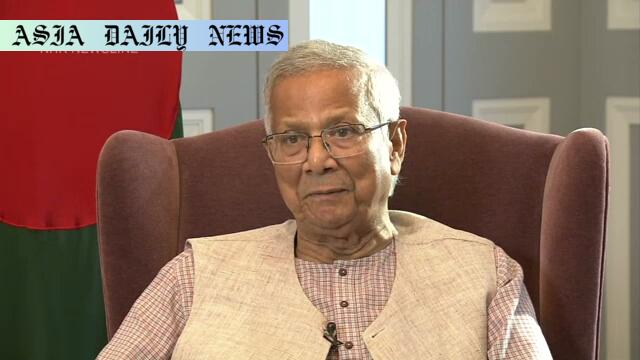Yunus expresses hope for Japan’s leadership in Asia with a focus on boosting bilateral cooperation and youth entrepreneurship support.
Yunus advocates stronger ties between Bangladesh and Japan, emphasizing youth empowerment.
He is pushing for reforms before the upcoming election, targeting systemic improvements.
Bangladeshi media reports his potential resignation amidst growing tensions.

Yunus Advocates Stronger Bangladesh and Japan Partnerships
Bangladesh’s interim leader, Muhammad Yunus, has called for a closer partnership between Bangladesh and Japan. Speaking in Tokyo, Yunus emphasized Japan’s capacity to lead Asia in innovation and economic development. His primary focus is on supporting young entrepreneurs and boosting bilateral cooperation to foster prosperity for both nations. Yunus, a Nobel Peace Prize Laureate, has a history of championing social reforms and economic inclusivity, making his current efforts an extension of his lifelong advocacy.
Tackling Challenges Amid Growing Political Tensions
Yunus admitted to facing resistance in implementing reforms within the interim government. Tensions with political parties and the military over the upcoming national election have reportedly made governance difficult. Despite these hurdles, Yunus remains committed to overhauling outdated policies and dismantling authoritarian systems that have, in his view, curtailed civil liberties. His approach entails a thorough review of existing structures to ensure safety, justice, and equity remain priorities.
A Vision for Youth and Economic Empowerment
During his interview with NHK, Yunus underscored the importance of empowering youth through entrepreneurial opportunities. By partnering with Japan, he envisions creating a framework that encourages innovation and economic independence among younger generations. His vision extends to creating a new era of political and economic reform, capitalizing on the expertise and support of nations like Japan. The initiatives he proposes are aimed at guiding Bangladesh into a transformative period.
Vision Beyond Leadership
While recent reports speculate on Yunus’s potential resignation as chief adviser, he remains determined to make a meaningful impact. His message during his Tokyo tour echoed a broader purpose beyond current political challenges. Yunus emphasized the essentiality of strengthening relationships with allies like Japan to secure Bangladesh’s long-term stability and progress. His leadership, even if temporary, aims to leave an indelible mark that paves the way for positive change.
As Bangladesh gears up for an election between December and June, Yunus’s efforts are a testament to the possibilities of collaboration, reform, and empowerment. The question that remains, however, is whether these aspirations will withstand the weight of political and social challenges in the months to come.



Commentary
Yunus’ Vision for a Progressive Bangladesh
Muhammad Yunus’s recent outreach to Japan is both ambitious and inspiring. His emphasis on youth empowerment strikes at the core of any nation’s sustainable development. With Japan as a potential partner, Yunus is opening doors to innovative collaborations that could redefine Bangladesh’s economic and entrepreneurial landscape. His initiative to engage younger generations in entrepreneurial ventures resonates with the global acknowledgment that the youth hold the key to the future.
The Mountainous Challenges Ahead
However, the path forward is fraught with challenges. Political tensions and systemic resistance have already started brewing, casting uncertainty on Yunus’s role and timeline for achieving his reforms. Behind the scenes, the military and political parties are amplifying pressure, signaling the hurdles that Yunus must navigate. Despite these challenges, his unwavering determination to bring systemic change to Bangladesh demonstrates his resilience and vision.
The Role of Japan in Asia’s Development
Japan’s leadership role in Asia, as Yunus emphasizes, is key to fostering regional harmony and economic growth. By collaborating on youth-led entrepreneurial initiatives, Japan can not only help Bangladesh but also reinforce its standing as a leading innovator in the Asian economy. The collaboration represents a win-win scenario, promoting mutual growth and long-term prosperity. It underscores how bilateral relations can serve as a cornerstone for development and reform.
In conclusion, Yunus’s endeavors must be viewed as a blueprint for emerging nations seeking reform, progress, and empowerment. His partnership aspirations with Japan reflect the necessity of global cooperation in addressing challenges that transcend borders. Whether he resigns or stays, Yunus’s leadership is a shining example of entrepreneurship, resilience, and vision for the future of Bangladesh.